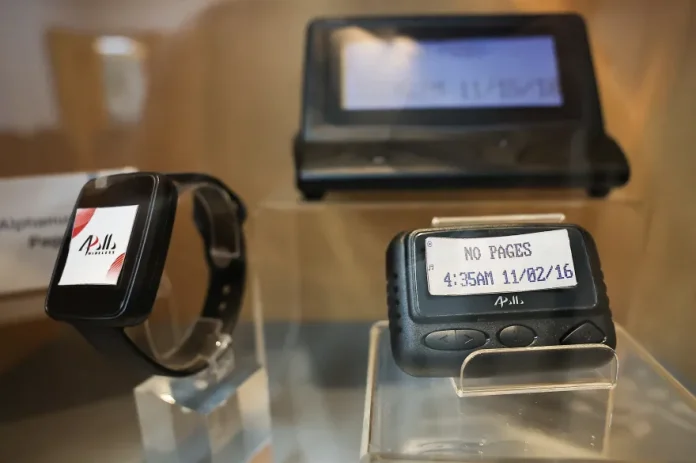Iran’s Islamic Revolutionary Guard Corps (IRGC) ordered all of its members to stop using any type of communication devices after thousands of pagers and hand-held radios used by its Hezbollah allies in Lebanon exploded, according to Reuters.
An Iranian security official revealed that the IRGC was conducting a major operation to check all devices, not just communications equipment. Most of the devices were either homemade or imported from third countries, he said.
Iran is concerned about the infiltration of Israeli agents, including Iranians. A thorough personnel investigation targeting mid- and senior-ranking members of the IRGC has already begun.
This includes scrutiny of their bank accounts both in Iran and abroad, as well as their travel history and that of their families.
On Tuesday, 17 September, pagers exploded in Hezbollah’s strongholds in a coordinated attack. On Wednesday, hundreds of Hezbollah hand-held radios and other devices detonated. The attacks killed 39 people and injured more than 3,000.
Another Iranian official said the Islamic Republic’s main concern was protecting the country’s nuclear and missile facilities, especially those underground.
But since last year, security measures at those sites have increased significantly. There has never, ever been such tight security and extreme measures in place as there are now.
Middle East tensions
The IRGC is a powerful political, military and economic force in Iran with close ties to Supreme Leader Ali Khamenei. It exerts influence in the Middle East through its Al Quds Force.
The Iranian military used a range of encrypted communication devices, including walkie-talkies, for secure communications, the first Iranian source revealed. While specific models and brands may vary, Iranian military communications equipment was often developed domestically or purchased from local and foreign suppliers, he said.
Tehran designed its own military-grade radio transmissions through its defence industry to avoid depending on foreign imports, especially due to Western sanctions imposed on Tehran over its nuclear programme, the source added.
The conflict, including between Israel and Hezbollah, escalated last year in parallel with the Gaza war, which erupted after the Palestinian group Hamas attacked southern Israeli communities on 7 October.
Iran and Hezbollah accused Israel of assassinating Hamas leader Ismail Haniyeh in Tehran and Hezbollah’s senior military commander Fuad Shukr in Beirut in July. Israel, for its part, sees Iran as an existential threat. It also accuses Iran of covert attempts to develop nuclear weapons.
